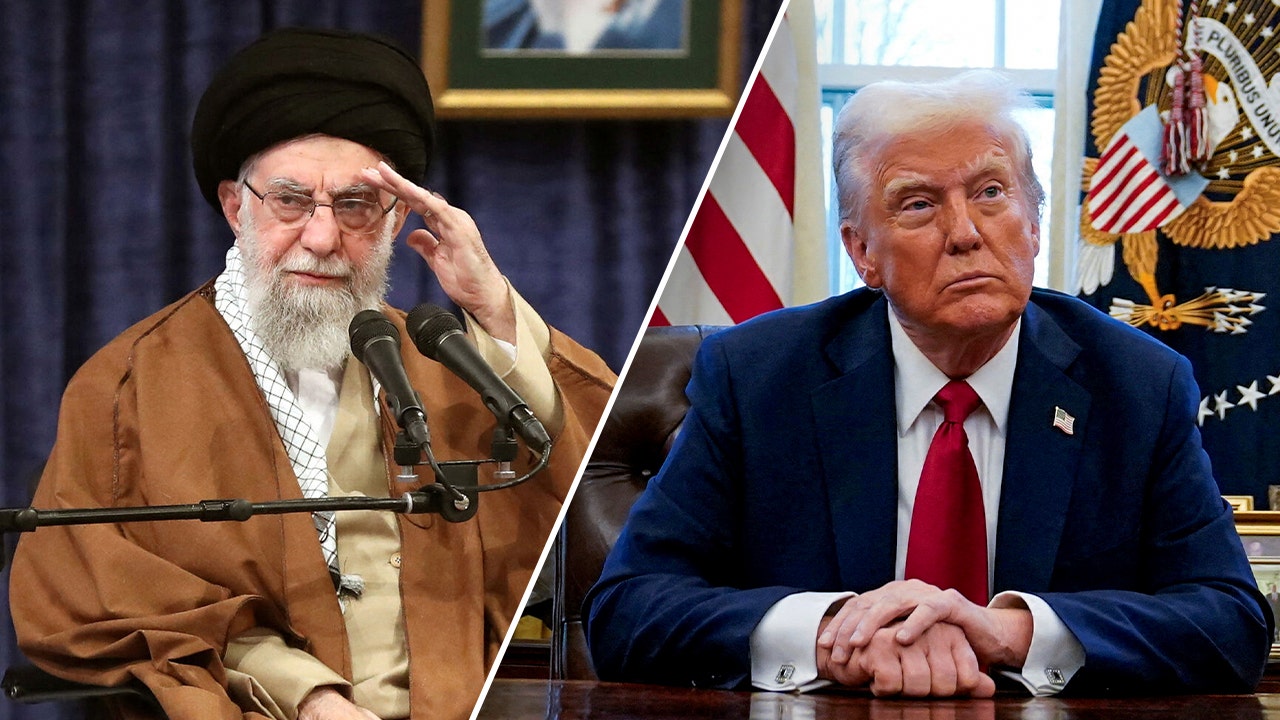World
Iran’s supreme leader says nuclear talks with Trump admin would not be ‘wise’

Iran’s Supreme Leader Rejects Nuclear Talks with the U.S., Citing Lack of Trust
In a significant and sharply worded address to air force officers in Tehran on Friday, Iran’s Supreme Leader Ayatollah Ali Khamenei dismissed the idea of nuclear talks with the United States, describing such negotiations as "not intelligent, wise, or honorable." Khamenei’s remarks marked a stark departure from his earlier hints of openness to dialogue with Washington over Iran’s nuclear program. Just months ago, in August, Khamenei had appeared to soften his stance, telling Iran’s civilian government that engaging with its "enemy" was not harmful. However, his latest comments reflect a hardened position, driven by deep-seated mistrust and frustration with the U.S. government.
While Khamenei did not explicitly issue an order to halt all engagement with the U.S., his statement carried significant weight, signaling a reluctance to revisit negotiations under the current circumstances. The Associated Press noted that Khamenei’s speech appeared to contradict his earlier indications of willingness to negotiate, suggesting a shift in Iran’s strategic posture. This change in tone likely reflects Iran’s growing skepticism about the reliability of the U.S. as a negotiating partner, particularly following President Donald Trump’s withdrawal from the Joint Comprehensive Plan of Action (JCPOA), also known as the Iran Nuclear Deal, in 2018.
Trump’s Mixed Signals: Calls for a “Verified Nuclear Peace Agreement” Amidst Pressure Campaign
President Donald Trump recently added another layer to the complex diplomatic dynamic between the U.S. and Iran by proposing a "verified nuclear peace agreement" with Tehran. In a post on his Truth Social platform, Trump suggested that such an agreement would allow Iran to "peacefully grow and prosper." He also dismissed as "greatly exaggerated" reports claiming that the U.S. and Israel were planning to launch a military assault on Iran. Trump even envisioned a "big Middle East Celebration" to mark the signing of such a deal, painting a picture of regional harmony.
However, Trump’s call for negotiations was not without its contradictions. Just days before his proposal for a peace agreement, he signed an executive order intensifying pressure on Iran, part of his "maximum pressure" campaign aimed at isolating the Islamic Republic. Additionally, Trump made headlines when he warned that if Iran were to assassinate him, the U.S. would "obliterate" the country. These actions and statements underscore the dual-track approach of the Trump administration: combining diplomatic overtures with economic and political pressure.
Despite Trump’s recent rhetoric, his decision to withdraw from the JCPOA in 2018 remains a major point of contention. At the time, Trump criticized the agreement as "one of the worst and most one-sided transactions the United States has ever entered into," arguing that it failed to adequately constrain Iran’s nuclear ambitions. The move was met with widespread criticism from international allies and Iran, which had been adhering to the terms of the deal.
Khamenei Blasts the U.S. for Reneging on the JCPOA
During his address to air force officers, Khamenei directly criticized the U.S. for its role in the collapse of the JCPOA. He accused the Americans of failing to uphold their commitments under the agreement, stating, "We negotiated, we gave concessions, we compromised—but we did not achieve the results we aimed for." Khamenei also referenced Trump’s withdrawal from the deal, saying he "tore up the agreement." These remarks highlighted Iran’s deep frustration with what it perceives as American unreliability and bad faith.
Iran has consistently maintained that its nuclear program is intended for peaceful and civilian purposes, such as energy production and medical research. However, the country has made significant strides in uranium enrichment, reaching levels of up to 60% purity—just short of weapons-grade uranium. This progress has raised concerns among global powers, which fear Iran may be edging closer to developing nuclear weapons.
Tensions Escalate Amid Regional Instability and Rivalries
The current tensions between Iran and the U.S. are unfolding against a backdrop of broader regional instability. In addition to his comments on Iran, Trump has made waves with his suggestion that the U.S. should take over Gaza amid the ongoing Israel-Hamas conflict. Khamenei appeared to reference these remarks indirectly, criticizing American attempts to redraw the world map. "The Americans sit, redrawing the map of the world—but only on paper, as it has no basis in reality," he said. "They make statements about us, express opinions, and issue threats. If they threaten us, we will threaten them in return. If they act on their threats, we will act on ours. If they violate the security of our nation, we will, without a doubt, respond in kind."
Khamenei’s remarks reflect Iran’s defiance in the face of external pressure and its determination to assert its influence in the region. However, this posture also raises concerns about the potential for further escalation. International Atomic Energy Agency (IAEA) Director General Rafael Grossi recently expressed regret over the lack of a "diplomatic process ongoing which could lead to a de-escalation or a more stable equation," underscoring the urgency of resolving the standoff through dialogue.
The Deadlock in Diplomacy and the Path Forward
The current impasse in U.S.-Iran relations highlights the challenges of reviving diplomacy amid deepening mistrust and competing interests. While Trump’s proposal for a "verified nuclear peace agreement" offers a potential opening for dialogue, his administration’s ongoing "maximum pressure" campaign and Iran’s hardened stance create significant obstacles. For diplomacy to succeed, both sides will need to address the broken trust and implement confidence-building measures.
Ultimately, the path forward will require a willingness to compromise and engage in meaningful negotiations. As the situation stands, however, the rhetoric from both sides suggests that a breakthrough is unlikely in the near term. Without a concerted effort to address the underlying issues, the tensions between the U.S. and Iran may continue to escalate, posing risks not only to regional stability but also to global security.